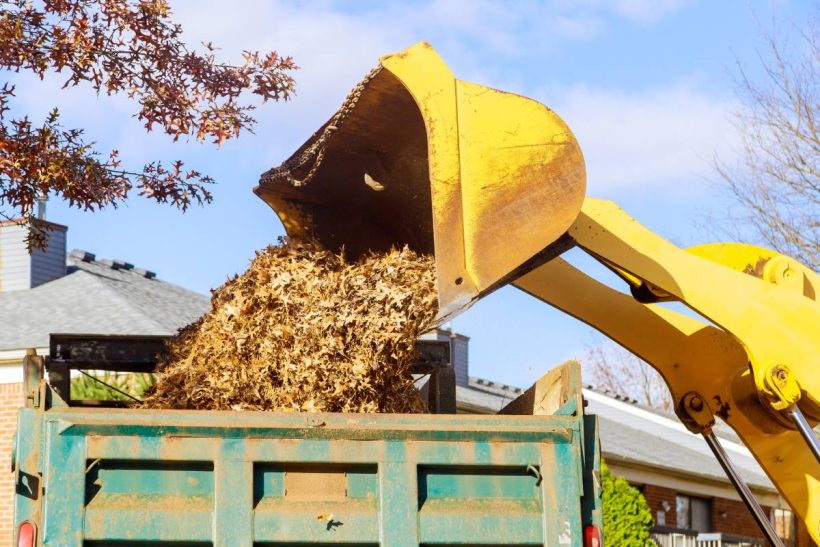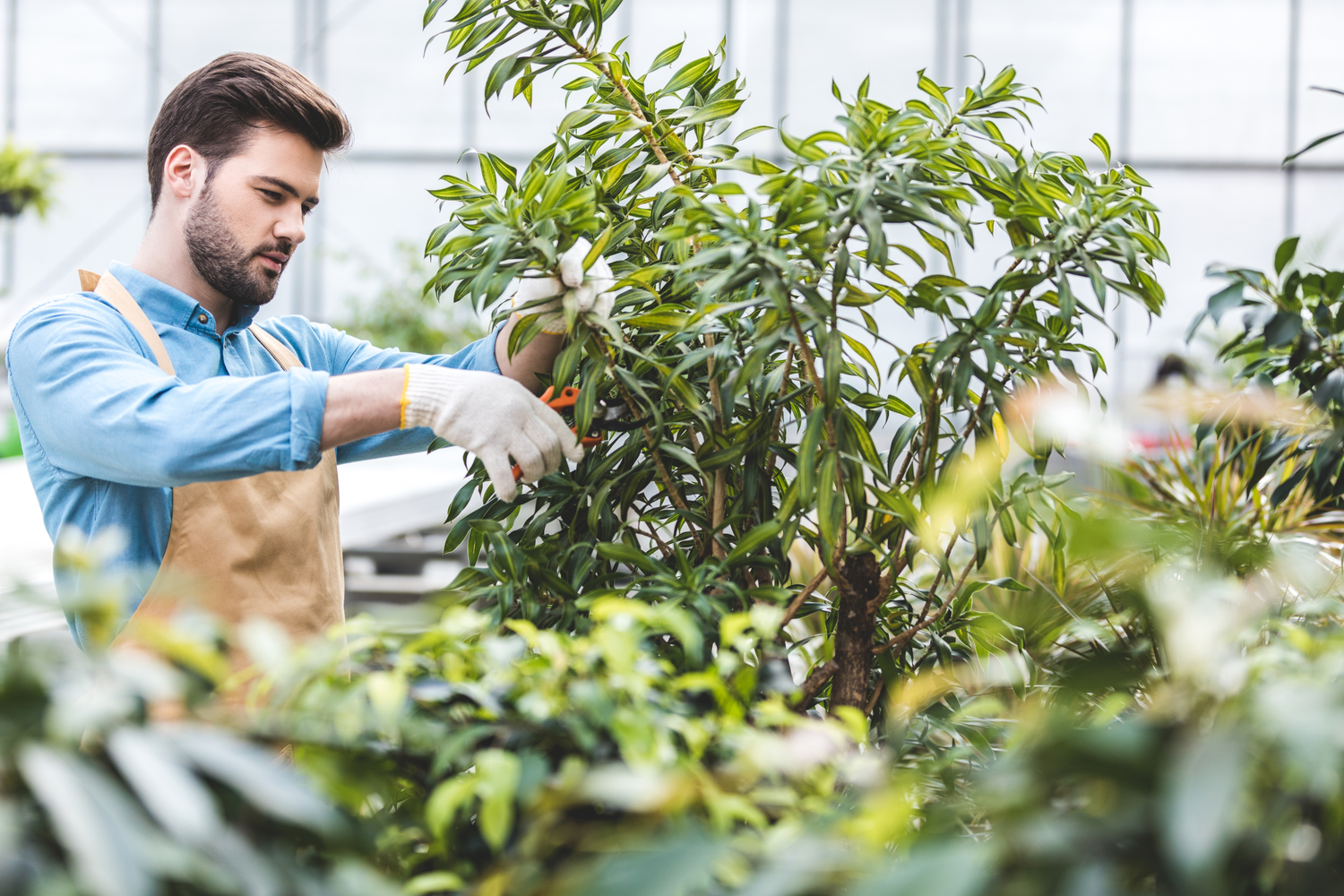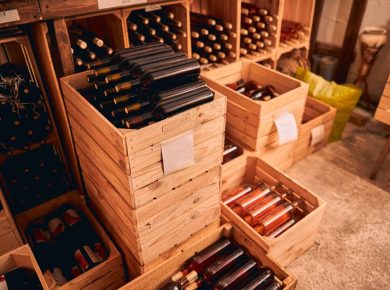Yard work can be tough, and it doesn’t end once the job is done. Tasks like mowing the lawn or trimming bushes often leave behind piles of debris that can be tricky to handle.
If you’re looking to tidy up your yard but aren’t sure how to deal with the waste, you’re in luck. In this guide, we’ll explain what qualifies as yard waste and offer some simple, eco-friendly DIY solutions for disposal.
What Qualifies as Yard Waste?
These items are generally classified as yard waste:
- Branches and brush from tree pruning or tree loping
- Flowers and floral trimmings
- Grasses and weeds
- Leaves
- Tree trimmings
- Untreated, unpainted wood
- Christmas trees
- Fruit and vegetable scraps and plants
These items typically do not fall under the category of yard waste:
- Plant pots
- Dirt
- Rocks
- Pet waste
- Bricks
- Plant tags
- Plywood, pressboard, painted, stained, or treated wood
Can Yard Waste Go in Trash or Recycling Bins?
Yard waste usually cannot be disposed of in regular trash bins due to environmental regulations in many states. Landfills often prohibit yard waste for ecological reasons.
Similarly, yard waste should not be placed in recycling bins, as it cannot be recycled like paper, plastic, or glass. However, yard waste can be composted. Check if your local government provides yard waste collection services if you prefer not to compost on your own.
Here are 5 ways to get rid of most types of yard waste
1. Rent a Dumpster
Renting a dumpster is a fast and efficient option. Homeowners commonly use dumpsters for junk removal, and they work just as well for yard debris. You can even toss in other types of waste, like from a shed demolition. The rental company drops off the dumpster at your property, you fill it up, and then they pick it up and dispose of the waste. Just make sure to follow their rules about what you can put in it. You’ll need space for the dumpster and will have to fill it yourself, though.
- Pros: Quick, easy, and cost-effective.
- Cons: Requires space for the dumpster and you have to do the filling.
Remember, if you’re dealing with materials like dirt or concrete, arrange for disposal with the rental company beforehand.
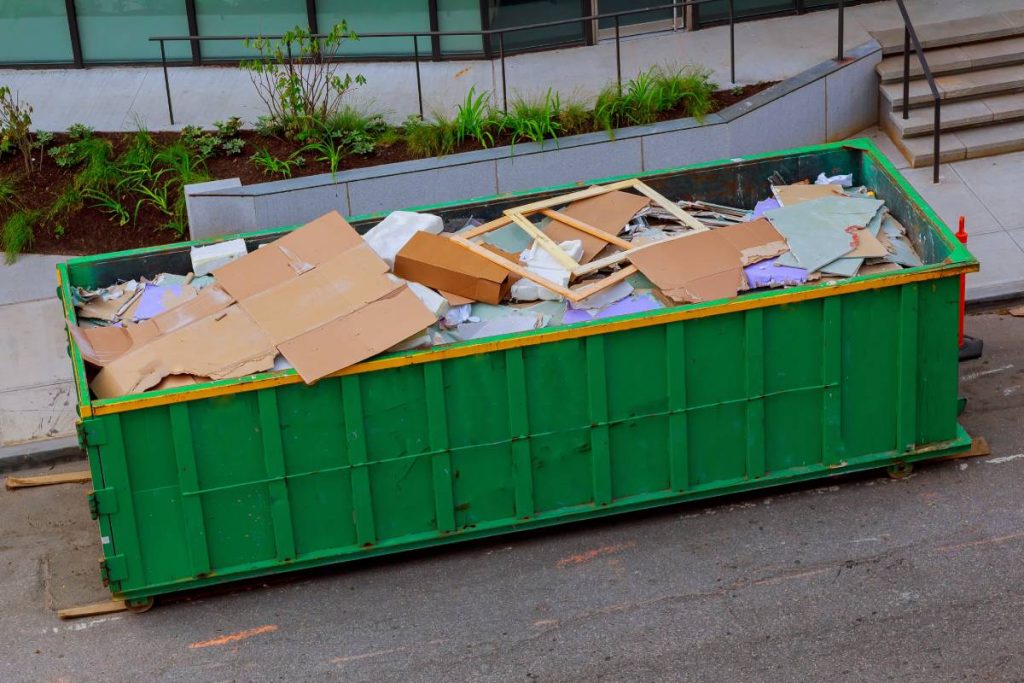
2. Utilize Your Local Municipal Yard Waste Collection Service
Many cities and towns offer a convenient yard waste pickup and recycling service as part of their trash collection program. Some provide curbside pickup on designated days.
Be sure to inquire with your municipality to determine if they offer yard waste pickup and learn about their collection schedule. Keep in mind that these services may not be available everywhere, and they might not always be free.
Each area has its own rules and regulations. You might need to use special yard waste bags or paper bags instead of plastic ones. Additionally, there may be restrictions on the types and quantities of materials you can dispose of, so it’s essential to check the local guidelines.
- Pros: Managed by local government for your convenience.
- Cons: You’ll need to understand and adhere to local regulations, and the service may not be accessible or suitable for your needs.
3. Take It to a Local Recycling Drop-Off Site
Many regions have designated drop-off locations where you can bring your yard waste to be recycled into compost. You can contact your public works department to find out if your area has such a site, or you can search for local businesses offering this service, often recycling yard debris into mulch.
These sites typically have specific operating hours and may impose restrictions on the types and amounts of waste accepted, as well as how it should be prepared for disposal. Staff may be available to assist you, and while this service is often free, some sites may charge a fee.
- Pros: Dispose of waste at your convenience.
- Cons: You’ll need to transport the waste yourself; there may be limitations and preparation requirements; and the site conditions may be challenging, such as mud or slippery surfaces.
4. Consider Hiring a Private Yard Waste Disposal Service

If you’re willing to pay, you can opt for a private waste disposal service to handle various types of waste, offering both one-time and recurring curbside collection options. Some may also provide recycling services.
When choosing this option, it’s crucial to compare prices and the services included, as costs can accumulate rapidly. Prices vary by state and the specific services you need. Typically, these companies charge between $15 to $25 per cubic yard, totalling around $150 to $300 per property per collection. Many services also have a minimum charge, usually around $70 to $80 for a single load.
- Pros: Convenient service.
- Cons: The total cost may be significantly higher than local alternatives or renting a dumpster.
5. Consider Burning Your Yard Waste (if Legal and Safe)
Burning yard waste can be a swift disposal method, but it’s essential to verify state regulations to ensure legality and learn about seasonal burning restrictions.
For instance, in some states like California, a permit may be necessary for burning waste. Burning might also be prohibited during certain periods to mitigate wildfire risks. Additionally, there may be size limitations for the fire pile, often recommended at around four feet for safety.
If you choose this approach, ensure you only burn yard waste in a controlled setting with access to water for extinguishing (such as a hose or buckets). Check weather conditions to avoid burning during windy or dry periods. Also, inspect the area for potential hazards like power lines, tree limbs, and nearby buildings. Surround the fire with a 10-foot radius of gravel or soil in all directions and monitor it until completely extinguished.
- Pros: Can be done independently at no cost.
- Cons: Burning may contribute to air pollution and poses risks if not executed properly.
3 Eco-Friendly Ways to Dispose of Yard Waste Yourself
If you have the time and inclination, consider these environmentally friendly alternatives for handling your yard waste. Below are some of the most eco-conscious methods for managing yard waste.
Compost Your Yard Waste
Composting harnesses the natural breakdown of organic matter to produce nutrient-rich soil or mulch. It’s an excellent option for those interested in gardening.
You can compost a variety of organic materials, including grass clippings, shrub and plant trimmings, and certain types of food scraps. You can create a simple heap, use a compost bin, or construct your own DIY compost container.
Incorporating compost into your garden can enhance soil fertility, prevent erosion, and conserve water, promoting healthier plant growth.
- Pros: Transforms yard waste into a valuable resource.
- Cons: Requires time and effort to build and maintain a compost pile with proper layering for optimal decomposition.
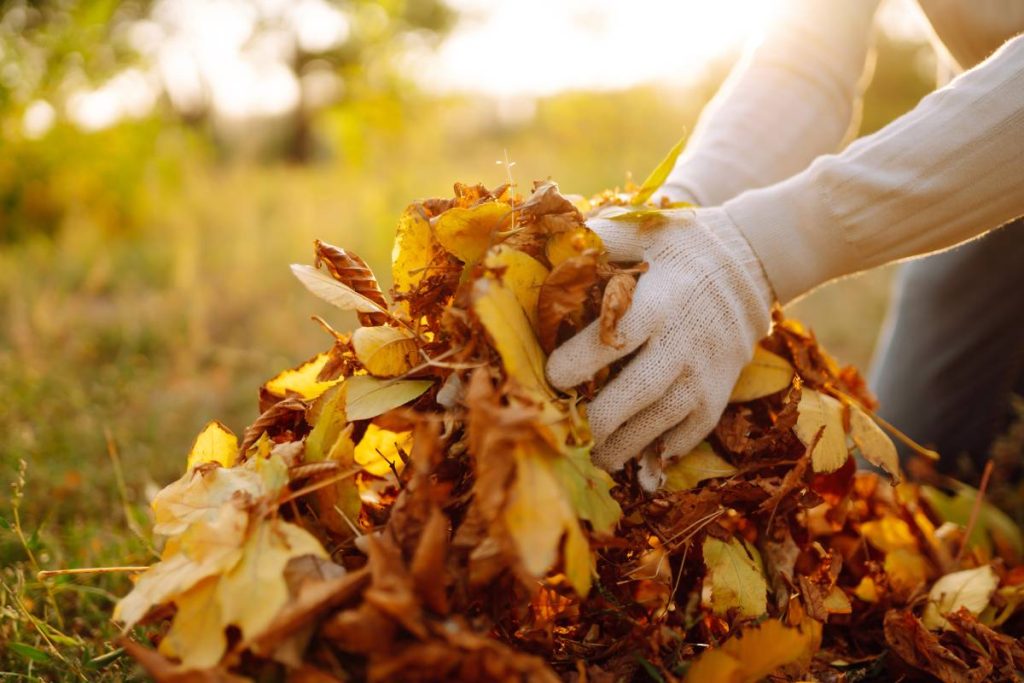
Transform Waste into Mulch
Much like composting, mulching offers a way to repurpose organic waste for the benefit of your garden’s health. Mulch is applied over the soil and around plants, acting as a protective barrier against weeds, wind, and moisture loss.
Materials such as dried leaves, grass clippings, and chipped branches or tree stumps can all serve as effective mulch. Additionally, rocks and gravel, which are typically not recyclable through standard waste collection, can be utilized to expand your mulch coverage.
- Pros: Converts yard waste into a useful resource, including materials not typically recyclable (like rocks and gravel).
- Cons: Requires a significant amount of yard waste to generate sufficient mulch.
Engage with Your Local Community
Your community may have composting programs that welcome contributions from residents. If you’re unsure where to start, platforms like ShareWaste can help connect you with nearby individuals or organizations. Some local government waste collection services recycle yard waste into compost or mulch, which is then made available for residents to collect and utilize.
- Pros: Potential benefits for the local community.
- Cons: Availability of services may vary by location.
In conclusion
To wrap it up our tips on keeping your yard looking neat while being a friend to our planet. So, here’s the scoop: composting and mulching are your best buds when it comes to yard waste. Not only do they keep your garden happy, but they also help cut down on that environmental footprint. And don’t forget about those local community projects – jumping in can make a big difference!
Remember, not all waste is created equal, so let’s keep those leaves and clippings out of the regular trash and give them a new life in the garden instead. It’s all about making smart choices for our environment – let’s team up for a cleaner, greener tomorrow!
